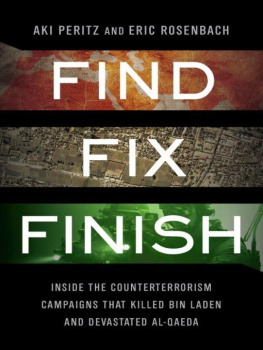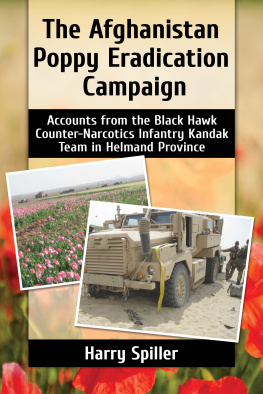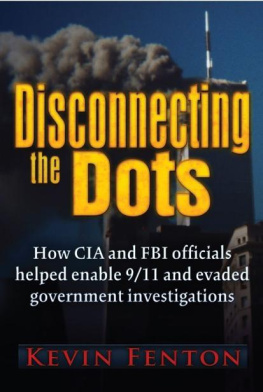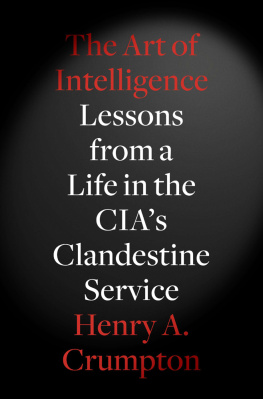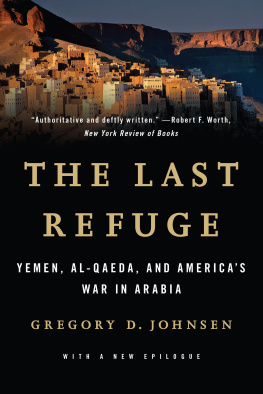Endless Enemies
RELATED TITLES FROM POTOMAC BOOKS
Bullets, Bombs, and Fast Talk:
Twenty-five Years of FBI War Stories
James Botting
On-Scene Commander: From Street Agent
to Deputy Director of the FBI
Weldon L. Kennedy
Ruse: Undercover with FBI Counterintelligence
Robert Eringer
One Marshals Badge: A Memoir of Fugitive Hunting,
Witness Protection, and the U.S. Marshals Service
Louie McKinney, with Pat Russo
Pick Up Your Own Brass: Leadership the FBI Way
Kathleen McChesney and William Gavin
Endless Enemies
Inside FBI Counterterrorism
Raymond W. Holcomb
with Lillian S. Weiss

Copyright 2011 by Raymond W. Holcomb and Lillian S. Weiss
Published in the United States by Potomac Books, Inc. All rights reserved. No part of this book may be reproduced in any manner whatsoever without written permission from the publisher, except in the case of brief quotations embodied in critical articles and reviews.
Library of Congress Cataloging-in-Publication Data
Holcomb, Raymond W.
Endless enemies : inside FBI counterterrorism / Raymond W. Holcomb, with
Lillian S. Weiss. 1st ed.
p. cm.
Includes index.
ISBN 978-1-59797-361-8 (hbk.)
1. Holcomb, Raymond W. 2. United States. Federal Bureau of InvestigationOfficials and employeesBiography. 3. TerrorismPrevention. I. Weiss, Lillian S. II. Title.
HV7911.H57A3 2011
363.3251630973dc22
2011005057
Printed in the United States of America on acid-free paper that meets the American National Standards Institute Z39-48 Standard.
Potomac Books, Inc.
22841 Quicksilver Drive
Dulles, Virginia 20166
First Edition
10 9 8 7 6 5 4 3 2 1
To Kim and Michael
Contents
Acknowledgments
In many cases, I have changed names or used only first ones to protect privacy and to avoid endangering some of the individuals I worked with during my career with the Federal Bureau of Investigation. I have also not identified sites when to do so could compromise national security.
The following individuals allowed me to use their names and generously contributed some of their recollections to this story: Dave Bernal, one of my partners in Athens; my close SWAT team members, Bob Aldridge, Tom Lagatol, Clint Guenther, Kirby Scott, Paul Sutherland, Dan Fethiere, and Tom Bara; George Piro, one of my Fly Team stars; and Mike Dorris, the amazing legal attache whom I first met in Istanbul.
Thank you, Geoff and Squad C-25, for a great, memorable ten years. There were countless days on the job when I wondered out loud, And they pay me to do this?
I am indebted to many others who stood with me, covered my back, and taught me to be a better agent. Time did not allow me to seek each of you out and request permission to use your names.
All photos are from my personal collection unless otherwise noted.
I am grateful to my wife, Wendy, for her unparalleled support, encouragement, and commitment to me and to the telling of my story. It has been many years in the making, and she has been generous in affording me the space and time to complete it.
I would also like to thank my coauthor, Lillian Weiss, for her endless patience and quiet determination. If there is some literary value in this book, it is a result of her subtle ability to oftentimes dissuade me from engaging in the locker room diatribe so common to the business I was in. She was able to take my endless ramblings and create a cogent and compelling narrative of my twenty-two-year career.
I wrote this book for many reasons, but first and foremost I wanted to honor the men and women of the FBI for their heroic work. I salute them all.
Several government agencies reviewed this book prior to clearing it for publication. In some instances, names, places, and activities have been redacted on the basis that inclusion could adversely impact national security.
Preface
Terrorism is the unlawful use of force and violence against persons or property to intimidate or coerce a government, the civilian population, or any segment thereof, in furtherance of political or social objectives.
28 Code of Federal Regulations, section 0.85
The events of September 11, 2001, rocked the core of the institutions charged with protecting America, inviting recriminations and accusations from every quarter of the government and society. Some of the organizations that deserved a share of the blame lay low, cosseted by the screen of secrecy. Some used the failings and weaknesses to seize bigger budgets and more authority, neither of which were necessarily justifiable or of value. The Federal Bureau of Investigation, meanwhile, could not hide by asserting that matters were classified and therefore not for public consumption.
FBI Director Robert S. Mueller III delivered straightforward answers, calmly and professionally, to a long string of congressional subcommittees. Mueller was the right man at one of the thorniest periods in FBI history. With his leadership, the FBI looked at what went wrong and resolved to fix it. All bureau elements cooperated with every official inquiry and investigation. The institutional self-analysis was brutally honest.
By their nature, government institutions resist change, and the FBI is no exception. Nevertheless, the FBI, a hundred years old in 2008, made a radical shift in record time. Director Mueller understood that the FBIs existence depended on a new antiterrorism strategy and made it clear that developing it was now the bureaus first priority. He would address the identified organizational deficiencies and transform the FBI into an entity that could combat terrorism.
The outcome of the governments 9/11 probe was an acknowledgment of the government-wide need to consolidate and streamline the collection, analysis, and dissemination of information about threats to America and its interests. It revealed that there was no one place where all the evidence relating to terrorist threats could be sifted to look for the connections among the various leads.
With respect to the FBI in particular, we recognized that the bureau needed not just more personnel assigned to counterterrorism but also that the FBIs decentralized structure contributed to its inability to correlate the knowledge its components possessed. How could any agency make so radical a change in short order without sacrificing its principles? The FBI managed to do it. Meanwhile, it did not resort to harsh interrogation measures. It did not engage in unofficial covert propaganda campaigns to impugn other organizations or snatch power for the sake of having it. The bureau also continued to be admirably restrained, skilled, and sensitive in dealing with the Muslim community, pursuing every hate crime allegation that hinted at anti-Muslim paranoia.
Some of the information-sharing quandaries that 9/11 exposed would require massive recalibration among all the agencies involved and even legislative change. The FBI has to abide by many rules and regulations in preparing cases for trial to make sure their evidence stands up in court. Intelligence agencies dont have those concerns. The need to prepare for trials had always made it difficult for the FBI to cooperate with other agencies. Our intelligence-gathering organizations struggle daily with the idea of sharing information with another law enforcement agency that has to play by difficult rules. With few exceptions, successful prosecutions cannot be built on intelligence that is collected through sensitive techniques that cannot be disclosed to the enemy and that involve valuable human sources, people who have exposed themselves to extreme danger to acquire critical information and who cannot be identified and presented for cross-examination in civilian courts. Individual privacy concerns referee every FBI investigation. Although the infamous pre-9/11 wall that barred the sharing of information collected under the Foreign Intelligence Surveillance Act (FISA) with criminal investigators has been largely dismantled, the bureau must still tread cautiously and observe the constitutional rights of every American citizen. No other U.S. intelligence-gathering or national security organization deals with the challenge that the FBI faces. Some other organizations still dont fully understand it. However, every day since the events of September 11, 2001, the FBI has gotten better at the job of tackling international terrorism while staying within the rules.
Next page

